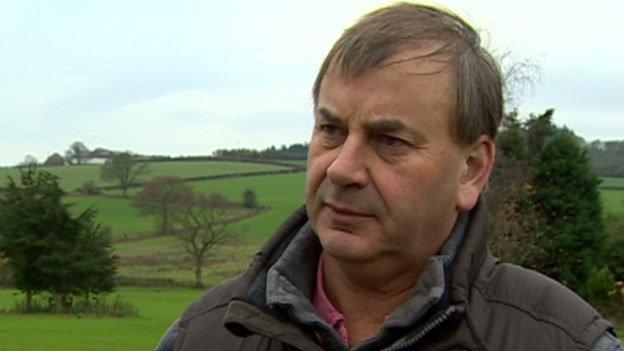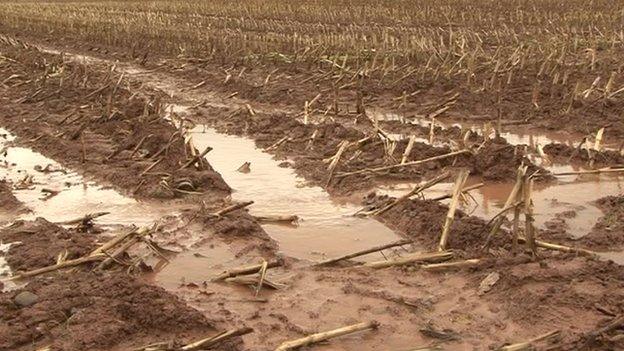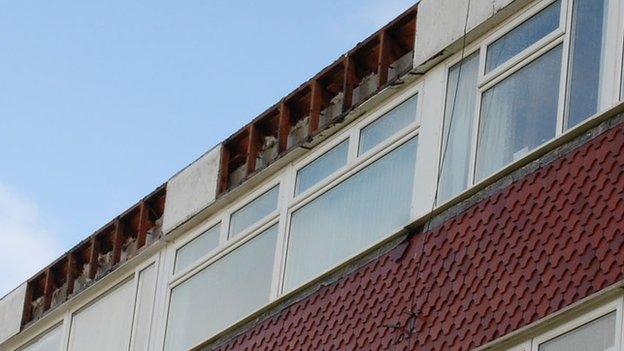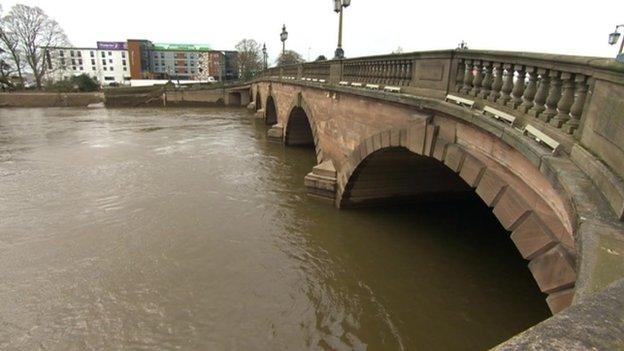Farmers warned over soil causing floods and river pollution
- Published
Mud washed off harvested fields can lead to flooding, the Wye and Usk Foundation says
European laws should be used to ensure Welsh farmers keep their soil in good condition, a rivers charity has said.
The Wye and Usk Foundation said mud washed off harvested fields can lead to flooding on rural roads.
They are calling on Natural Resources Wales and the Welsh government to use EU laws to deal with farmers who fail to look after their soil.
The charity said the soil is also affecting the numbers of salmon and trout numbers in Welsh rivers.
The problem has arisen because more farmers in Wales are using land for crops like turnips and maize to provide cheaper fodder for their livestock.
Over winter, fields are normally left as they are - with no grass or hardly any vegetation.
Then the ploughed fields lose their top soil in heavy rain and mud is washed onto roads and into streams and rivers.
That soil harms fish eggs, invertebrates and reduces fish stock as it reduces the levels of oxygen.

Farmer Rob Watkins is taking measures to try and stop losing top soil from his fields
Kate Adams, head of land use for Wye and Usk Foundation said: "What we're seeing in the winter is a lot of run-off soil which is increasing the chance of flooding.
"Having silt in the rivers has an impact on flooding and has an impact on the fish life.
"We're seeing a reduction in salmon and trout."
Abergavenny arable farmer Rob Watkins is taking measures to try to reduce the amount of top soil lost from his fields.
He said: "When you lose top soil, you're losing all the best soil. You can't keep losing that all the time."
NFU Cymru president Stephen James said: "Farmers do have an inherent interest in maintaining their land in good condition and in assuring its long-term fertility and productivity.
"We believe this can be supported through carefully targeted advice and information, voluntary action, partnerships and a greater emphasis on monitoring and research."

Water sits on a ploughed maize field. If rain is heavy soil can end up on the roads and in rivers
- Published3 October 2014

- Published15 February 2014

- Published23 February 2014
